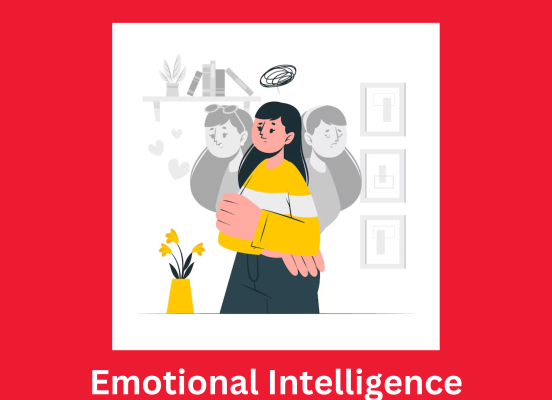

Emotional intelligence (EI) is a crucial aspect of personal development that encompasses the ability to recognize, understand, and manage both our own emotions and those of others. It plays a fundamental role in various aspects of life, including personal relationships, professional success, and overall well-being. This article explores the significance of emotional intelligence and provides insights into enhancing key components such as self-awareness, empathy, and relationship skills.
Introduction to Emotional Intelligence:
Emotional intelligence refers to the capacity to recognize, understand, and manage emotions effectively. It involves being aware of one's own emotions and those of others, as well as utilizing this awareness to navigate interpersonal interactions and make informed decisions.
Components of Emotional Intelligence:
Emotional intelligence comprises several components, including self-awareness, self-regulation, empathy, social skills, and motivation. Each component plays a crucial role in shaping how individuals perceive and manage emotions in various contexts.
Self-Awareness:
The cornerstone of emotional intelligence is self-awareness. It entails being aware of one's motivations, values, emotions, and strengths and shortcomings. Individuals with heightened self-awareness have a greater capability of comprehending one’s own emotional responses and behavioural patterns leading to making informed decisions and managing oneself emotionally
Practicing Self-Reflection:
Self-reflection is a valuable practice for enhancing self-awareness. It involves introspection and examination of one's thoughts, feelings, and actions. Regular self-reflection enables individuals to gain deeper insights into their emotions, identify areas for growth, and align their behavior with their values and goals.
Emotional Regulation:
Emotional regulation refers to the capability to control and manipulate one's feelings in numerous conditions. It entails spotting triggers, using coping strategies, and reframing poor thoughts to maintain emotional equilibrium. Effective emotional law enables people to reply to challenges calmly and constructively, as opposed to reacting abruptly.
Developing Empathy:
Empathy is the capacity to understand and proportion the feelings of every other. This includes being attentive to the feelings, perspectives, and studies of others and responding to them with care and kindness. Developing empathy enables individuals to establish closer relationships with each other, communicate higher, and settle disputes more easily.
Practicing Active Listening:
Active listening is a core component of empathy. It entails fully engaging with others' verbal and nonverbal cues, suspending judgment, and demonstrating genuine interest in their thoughts and feelings. By practicing active listening, individuals demonstrate empathy and validate others' experiences, strengthening interpersonal relationships.
Building Relationship Skills:
Forging lasting connections and handling social situations require strong interpersonal skills. These abilities include working together, resolving conflicts, establishing rapport, and communicating effectively. People who practice interpersonal skills build healthy connections in their personal and professional lives.
Assertive Communication:
Assertive communication involves expressing thoughts, feelings, and needs in a clear and respectful way. It enables individuals to communicate their boundaries, assert their rights, and advocate for themselves while also considering the feelings and perspectives of others. Assertive communication fosters healthy relationships and minimizes misunderstandings and conflicts.
Empathy in Leadership:
A vital quality for successful leadership is empathy. Empathic leaders are better in a position to relate to the wants and desires of their crew participants, create a nice work atmosphere, and win over followership and accept as true with. In order to acquire the goals as a group, it would be sensible for leaders to show knowledge and attention for different crew participants.
Cultivating Emotional Intelligence:
Cultivating emotional intelligence is an ongoing process that requires self-awareness, practice, and continuous learning. Individuals can enhance their emotional intelligence through mindfulness practices, emotional regulation techniques, empathy-building exercises, and seeking feedback from others.
The ability to negotiate relationships, handle stress, and make decisions are all influenced by emotional intelligence, which is crucial for both personal and professional success. People who develop their emotional intelligence are more likely to have deeper and more fulfilling lives because they understand themselves better, they can comprehend others’ feelings as if they were their own and they have better social competence.